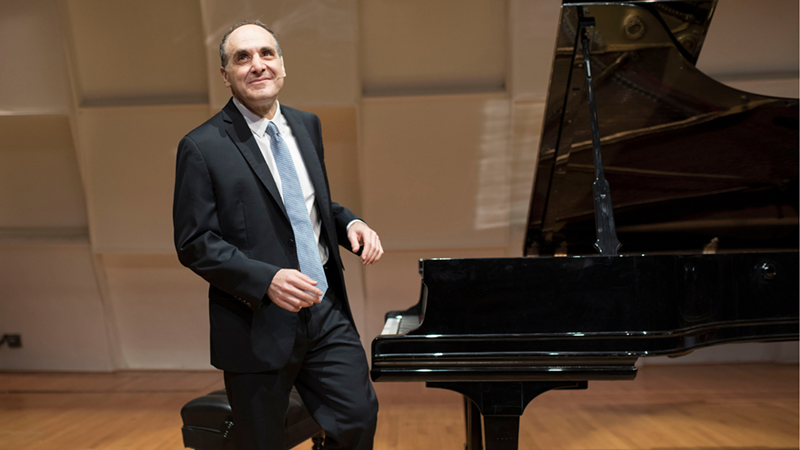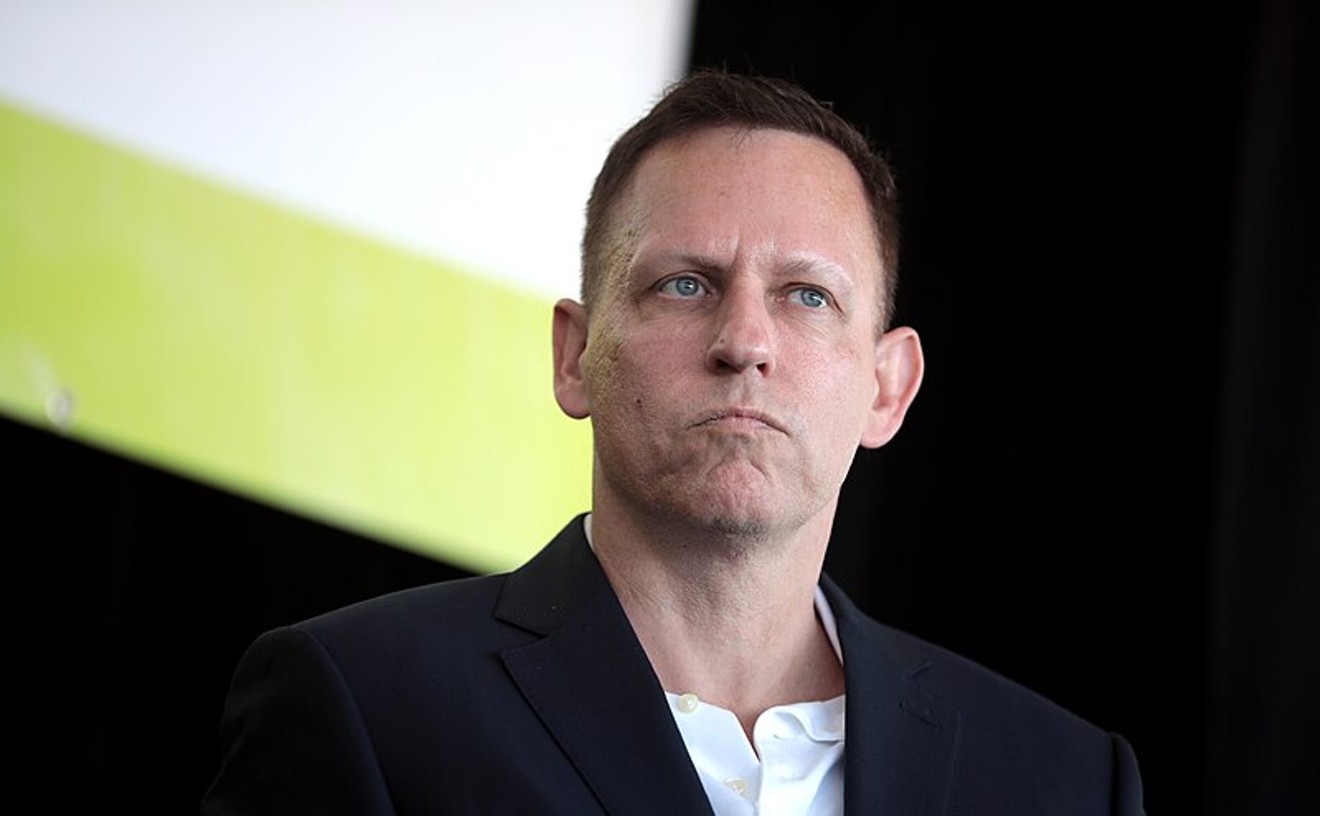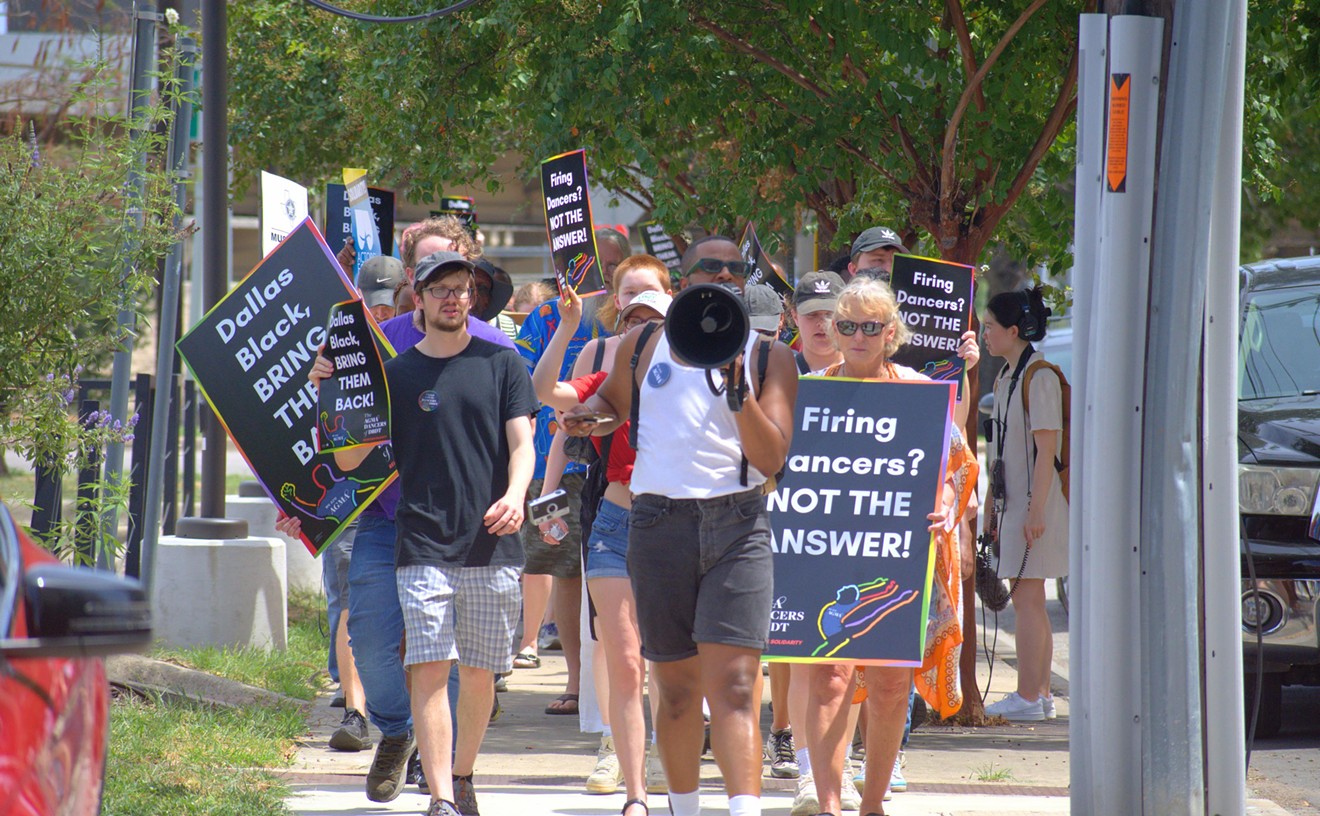For psychiatrist and concert pianist Dr. Richard Kogan, examining the depressive episodes and manic moods of classical legends is all in a day's work. A clinical professor of psychiatry at Weill Cornell Medical College and artistic director of the institution's music and medicine program, Kogan has built an entertaining secondary career exploring the role of musical healing through a series of lectures and concerts.
On Sunday, Aug. 25, Kogan will uncover Ludwig Van Beethoven's mind at the Morton H. Meyerson Symphony Center, as he explores the maestro's mental state, physical abilities and nuances of his personality that led to the creation of such iconic works as his Symphony No. 5.
A graduate of both the Julliard School of Music pre-college and Harvard Medical School, Kogan found himself drawn to music and medicine at an early age.
"I studied music as a youngster, and I was fascinated by the notion of the mind," he says. "I thought psychiatry would be the area to pursue, but I was involved in these two disciplines for many years. I had parallel careers, but what I focused on most recently was the interface between these two fields. I think about Beethoven, using my experiences as a psychiatrist, to look at things that influenced him."
At Julliard, Kogan became close with legendary cellist Yo-Yo Ma and violinist Lynn Change (the trio still play together occasionally). Yet, through their early chamber performances and 9 a.m. chemistry exams, it had yet to occur to Kogan to blend his two passions.
It wasn't until a colleague who was pulling together programming for the American Psychiatric Association symposium that Kogan decided to unpack the connection between mental illness and musical creativity.
"In preparation [for my lecture], I started reading biographies of composers I'd played my entire life, like Beethoven and Schumann," he says. "That's why I realized their life struggles seemed very similar to some of the patients I'd been treating. This was a light bulb moment to me. They were just these kinds of ironclad figures that were larger than life but not really people — they were icons. When I started looking at them like human beings for the first time, I related to them because their life stories make their music come alive to me. Thinking about how these masterpieces were born out of real struggles of a human being inspired me to bring their music to life and connect the audience to the person."
As director of the Medical Center's human sexuality program, Kogan is uniquely positioned to unpack what made these great composers tick. Robert Schumann is widely believed to have had bipolar disorder, George Gershwin was a depressed former juvenile delinquent and Tchaikovsky was a closeted homosexual.
Beethoven, who started losing his hearing at age 28, exhibited irregular behavior spurred on by depression. All of these disorders found their way into his compositions, and it takes someone with Kogan's adept ability to distill the man behind the music to do these stories justice.
"It's totally about communication," Kogan says of his performances, which blend his piano playing with talks examining the psychological factors affecting a composer's creative output. "In a sense, communication and emotion are the throughlines of these two fields [music and psychiatry]. They are very different in a lot of ways, but there's this enormous overlap between communication and emotion."
Having mined this particular territory for around 20 years, Kogan has delivered presentations everywhere, from the World Economic Forum in Davos, Switzerland, to the World Psychiatric Congress in Berlin. His relationship with the Dallas Symphony began when he met Morton Meyerson in 2010 at the Philosophical Society of Texas in Austin, resulting in his first program with the institution last fall.
Beethovian Rhapsody
"We had a wonderful conversation, and at the end of it, I asked him his name. He told me, 'Morton Meyerson.' He suggested that [then-CEO] Kim Noltemy might be interested in what I do," Kogan says. "I think what I do aligns with the mission of the Dallas Symphony. I think the DSO is looking to connect to an audience by making classical music a less forbidding art form. It is a very elite one, and a lot of times, people are intimated by these masterpieces. I'm trying to make it much more accessible by explaining to people." Choosing an early, middle and late sonata as musical illustrations, Kogan will toggle between playing and speaking, ensuring everything flows seamlessly during the program. He believes that Beethoven is a particularly popular choice because his music has continued to influence and reflect modern life, and his struggles reflect the importance of the ongoing creative process.
"Beethoven was born in 1770 and died in 1827, but in terms of resonance in modern times, his music was involved in some of the most important historical moments," says Kogan. "When the Berlin Wall fell down, they played his Ninth Symphony, 'Ode to Joy,' on both sides of the wall. In the revolution in [China's] Tiananmen Square, Beethoven's Ninth Symphony blared over the loudspeaker to inspire the notion of freedom. In so many different cultures and contexts all over the world, Beethoven's Ninth is used as the universal expression of the triumph of the human spirit. This one man living in a very particular time and place has expressed emotions better in contemporary times than what anybody is writing today."
The Mind and Music of Beethoven—An Afternoon with Dr. Richard Kogan will take place at 3 p.m. on Sunday, Aug. 25, at the Meyerson Symphony Center, 2301 Flora St.













